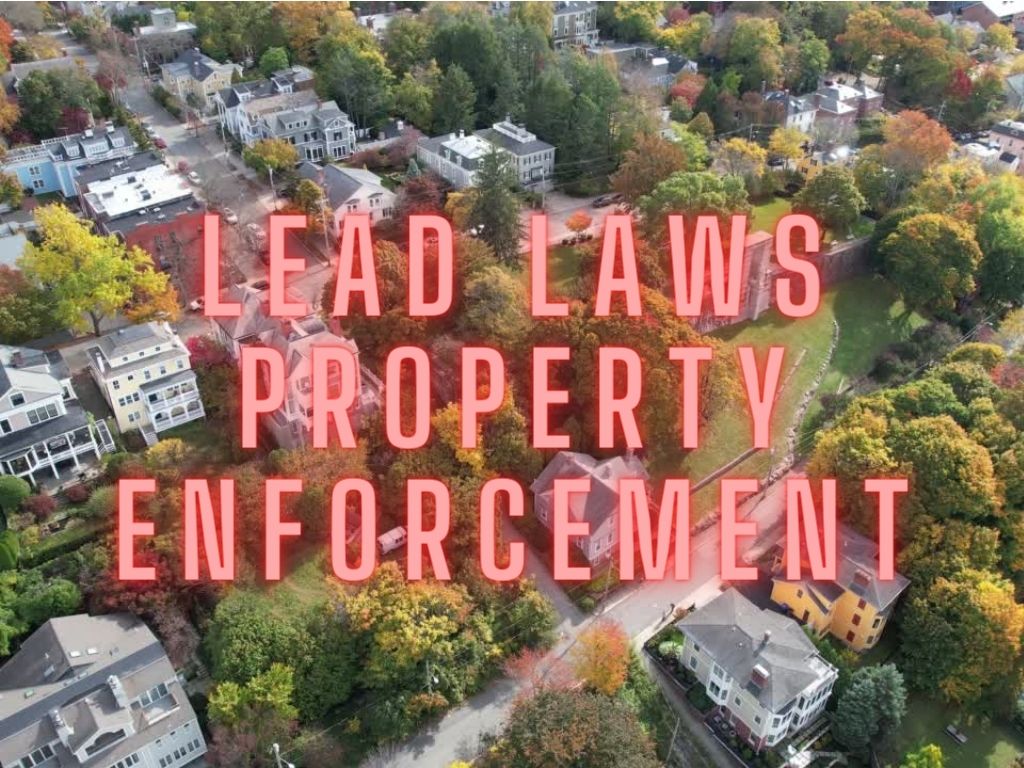In Rhode Island, a staggering 80% of our housing was constructed prior to 1978, resulting in multiple coats of lead paint and serving as the primary source of childhood lead poisoning. According to RI Department of Health data, 19% of Providence children are lead poisoned by the time they reach elementary school. This challenge is most pronounced in what the state designates as Core Cities, where child poverty rates exceed 25%. In these cities, a staggering 94% of residences were built before 1978, and 61% were constructed prior to 1940. This concentration of older housing creates a higher risk of lead exposure, particularly for our youngest residents.
As your trusted real estate expert, I believe it’s crucial to keep you informed about recent developments that impact Rhode Island’s real estate landscape. In particular, there have been significant updates regarding lead poisoning prevention which will significantly impact current Landlords and those considering investment properties. There’s no easy solution to tackle lead paint mitigation, prevention, remediation, and/or elimination–the state has had lead mitigation laws on the books for more than a decade with very little enforcement in place to mandate conformity to the laws. That has now changed with a series of Bills that were passed this summer. Read the info below and then make sure you check out my other blog post, Property Compliance: Obtaining Your Lead Conformance Certificate, so that you can ensure your property is in compliance.
1. Lead Inspection for Water Service Lines
Water authorities are now required to inspect water service lines and inform property owners and tenants if lead is detected. If your property’s service line contains lead, funding may be available to off-set the cost of replacing the lead lines. Importantly, if a landlord refuses inspection or replacement, tenants have the right to terminate their lease without penalties. This law is already in effect. Contact your local water authority for information–some municipalities are covering the entire cost while others have access to 0% Loans for extended periods of time. Check out the info from PVD Water Authority
2. Landlord Registration with RI Department of Health
While Landlords have been required to obtain a Certificate of Conformance for the past decade, there hasn’t been much by way of enforcement which means most property owners ignored the requirement. But those days are over. Landlords are now required to register their property and current lead certificates with the RI Department of Health. This public registry will help to ensure transparency and accountability in lead hazard mitigation efforts. Property owners for rental units are required to have the property inspected by a licensed provider. Here’s the kicker– the certificate must be renewed every two years or when a tenant vacates--whichever is the soonest. Please take a look at the RI Dept of Health for details as well as RI Housing for limited funding that may be available to offset the cost for residents of Rhode Island.
3. Tenant Rights Regarding Lead Certificates
Tenants now have the right to pay rent into a district court-managed escrow account if their landlord fails to obtain a current lead certificate. It may be especially difficult for Landlords who do not have a valid Compliance Certificate to evict tenants–tenants cannot be evicted or retaliated agains for requesting a copy of the Certificate or filing a complaint against a Landlord who is not in compliance. The public database is an attempt at transparency as well as accountability. Here is a flier that outlines tenant rights as well as landlord rights. Additionally, Starting in October 2024, landlords in Rhode Island face a crucial change in the eviction process. To better protect tenants’ health and well-being, a Lead Safe/Compliance Certificate must now be included as an attachment to an Eviction Complaint. Again, read my blog post Obtaining Your Lead Conformance Certificate for more on this topic as this is a SIGNIFICANT change.
4. Increased Penalties for Lead Law Violations
To reinforce the importance of lead law compliance, penalties for violations have been significantly increased. Those found in violation may face double and treble damages, plus attorney’s fees. This stringent approach aims to ensure safer housing conditions for everyone. Enforcement will continue to be difficult but Landlords do not want to be on the receiving end of violations—get your property into compliance!
5. Elimination of Owner-Occupied Dwelling Exemption
Starting January 1, 2024, the exemption for owner-occupied two- and three-unit dwellings from the lead hazard mitigation law will be eliminated. Owners of these properties must obtain lead certificates for each unit as well as common areas if the property was built before 1978.
6. Extended Inspection Period for Buyers
For properties built before 2011, buyers will now have an option for a ten-day inspection period to check for lead hazards. This change ensures that buyers have ample time to make informed decisions when purchasing a property. All other lead laws still apply to properties built before 1978.
7. Exemptions Effective September 1, 2024
Starting September 1, 2024, several exemptions will apply to lead hazard mitigation requirements. These include properties with a Full Lead-Safe or current Conditional Lead-Safe Certificate, temporary seasonal housing rented for no more than 100 days in a calendar year, housing designated for residents aged 62 or older, and owner-occupied properties with two or three units (until January 1, 2024).
Click on the link view the bills and overview from Rhode Island Association Of Realtors: Legislative Updates
Document with info and resources: Lead in your home, RI lead law
Check out the Rhode Island Department of Health’s fact sheet, What is the Lead Hazard Mitigation Law? Owner requirements
Childhood Lead Action Project: additional resources
As your dedicated real estate advocate, I’m here to keep you informed and help you navigate these updates. If you have any questions or need assistance with any real estate matters, please don’t hesitate to reach out!



